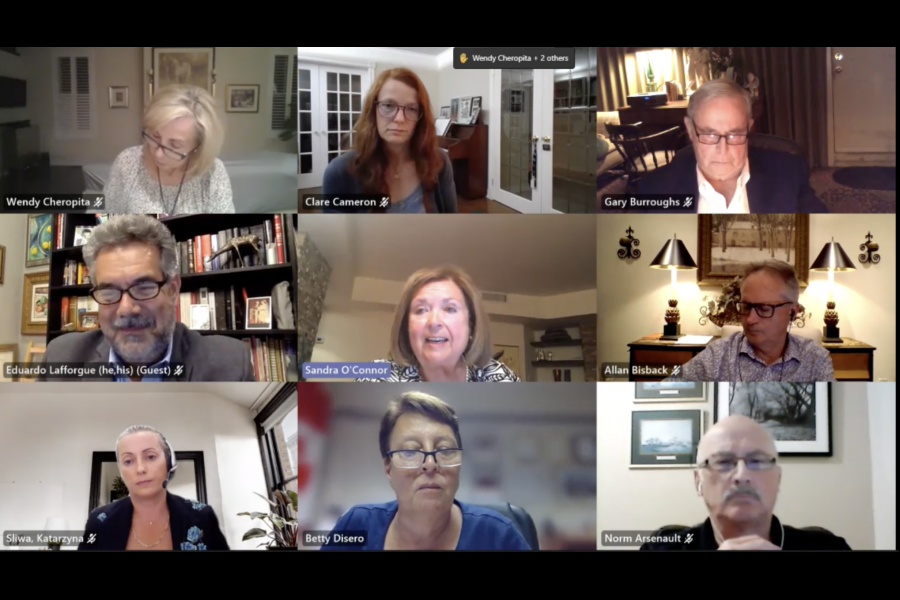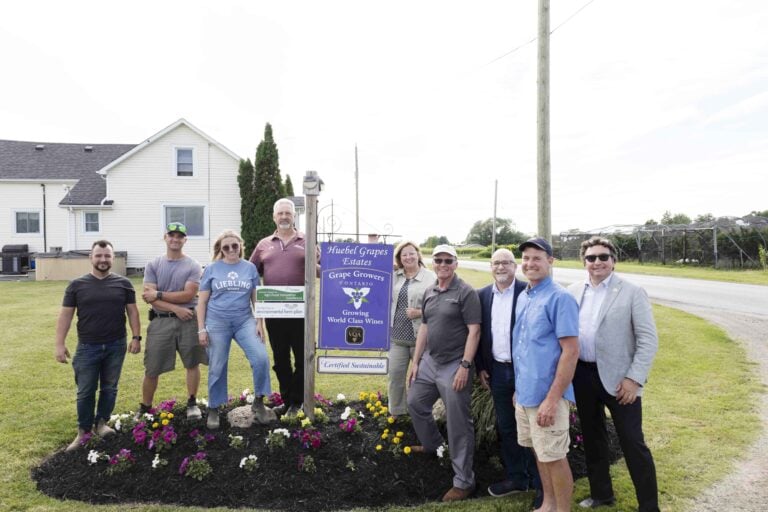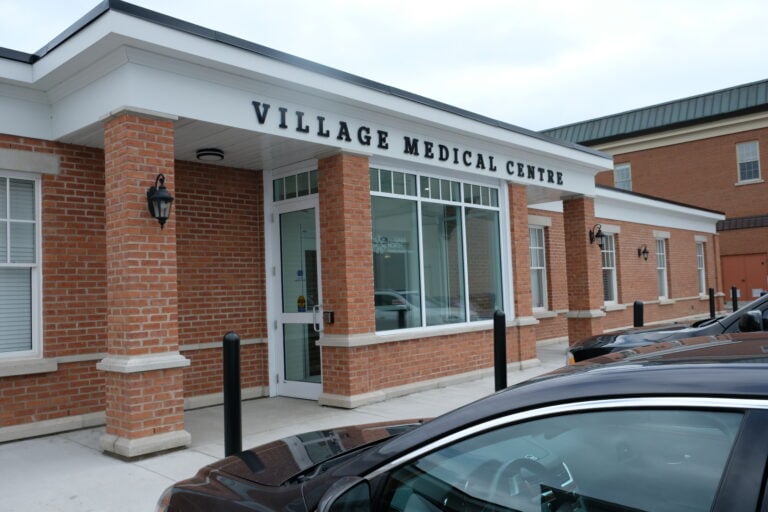The Town of Niagara-on-the-Lake is implementing a municipal accommodation tax in its 2022 budget, a move that sparked contentious debate during a council meeting Monday.
The tax is one of the few tools the municipality has at its disposal to increase revenue and support tourism infrastructure, Coun. Allan Bisback told councillors.
The levy will be applied to accommodation with five or more rooms and will scale up from two per cent in 2022 to four per cent over three years.
All revenue from the tax will be directed toward tourism infrastructure and will be used to pay for administration of the program.
The tax was at the centre of a lengthy debate over its merits for the town and its possible negative impact on NOTL’s tourism sector, particularly while the COVID-19 pandemic is still affecting hospitality- and tourism-related businesses.
NOTL attracts about 2 million tourists per year, according to a motion presented to council by Lord Mayor Betty Disero.
The document also listed more than 50 Ontario municipalities, from Brockville to Niagara Falls to Toronto, that have implemented an accommodation charge.
The plan passed 6-3, with Couns. Clare Cameron, Gary Burroughs and Wendy Cheropita voted against the plan.
“It feels very wrong and very rushed and very pushed to be doing this now, of all times. The pandemic is far from over,” Cameron said.
NOTL Chamber of Commerce president Eduardo Lafforgue agreed.
“The tourism industry, and in particular accommodations, are among the hardest hit businesses in any sector and are all struggling to recover from the worst crisis most of us remember,” he told councillors.
“There could not be a worse time to reignite the discussion about (the municipal accommodation tax). Nothing has more potential to create division and disagreement within our struggling community.”
The idea of an accommodation tax is not new and has been debated by the town several times over the years.
In January 2020, the current council in committee approved a 4 per cent levy but then turned around two weeks later and rejected the idea when it came up for final approval.
Bob Jackson, chief executive officer of Lais Hotel Properties Ltd., which operates several NOTL hotels including the Prince of Wales, said the abrupt arrival of the motion during the pandemic caught him and his business off-guard.
“We were floored that this came up right now. Clearly, we are in something that has had the biggest impact on our industry that anybody has in memory,” Jackson said in an interview Tuesday.
He said the pandemic is still affecting the hotel business.
“This summer’s been better than last but it’s challenging. We are nowhere near previous levels prior to the pandemic,” he said.
“Industry revenues were off 70 to 80 per cent for 18 months. We’re hopeful we can sustain the level of demand and business continues to grow.”
Jackson fears the tax can prompt a decrease in demand.
“When you put a tax on top of (rentals) you’re going to have an effect on demand. It’s just really an overall effect on demand and how it looks for the town,” he said.
Several people made their case against the tax, telling councillors it would be detrimental to the town’s image as a tourist destination.
“It may have an impact on the brand, or the flavour, of how people come here, especially returning Americans who have lots of other choices about where to go,” said Tim Jennings, executive director of the Shaw Festival.
One such competitive area is the increasingly popular Prince Edward County, said Disero, who spearheaded the tax plan. Prince Edward County has had a municipal accommodation tax since 2021.
Jennings said the Shaw Festival had revenues of $34 million a year before COVID. He said even a five per cent decrease on that due to the tax would mean a $1.75 million loss or about $227,000 lost in provincial and municipal taxes.
Disero pushed Jennings to quantify how much money the Shaw pays to the town each year and he estimated it is about $220,000 through a variety of means.
Lawyer Katarzyna Sliwa spoke on behalf of Lais Hotel Properties Ltd.
She said the tax would impact perception of NOTL as a tourist-friendly location and be an “impediment to recovery” for the hospitality industry.
Bisback was having none of it.
“I don’t buy for a minute that a tax of two per cent on a bed and breakfast of $200 or a hotel of $350 is going to distract an individual from attending one of the most premiere destinations in Ontario,” the councillor said.
Jackson took issue with the wording of the motion, which said that the 18,000 taxpayers in NOTL cannot carry the burden of tourism infrastructure any longer.
“That’s an incredibly divisive statement essentially trying to pit residents in town on a collision course with local business and tourism businesses,” Jackson said.
“We are not at odds with our neighbours or the residents in town. We’ve had discussions more meaningful with our neighbours than we’ve had with this lord mayor.”
Jackson argued that the tourism sector brings prosperity to the town.
“Residents benefit from all the restaurants and shops and theatres. We built a six-acre park here (at the Pillar and Post), $20 million and everyone has access to it,” he said.
“Those are all things the residents are benefitting from, not to mention you have a $2 million home that would be worth half of that if it wasn’t in Niagara-on-the-Lake.”
Councillors against the tax argued it should not be implemented until the town’s tourism strategy plan is done.
Chief administrator Marnie Cluckie told councillors the tourism plan would take about 18 months to complete.
Coun. John Wiens previously voted against a municipal accommodation tax and on Monday he argued against waiting until the tourism strategy is finished.
This prompted a five-minute recess where Wiens and Coun. Erwin Wiens came up with an amendment that stipulated the tax be included in the scope of the tourism strategy.
John Wiens then voted in favour of the tax.
Burroughs said emails the town received about the tax were about evenly split on the idea.
One of the main arguments in favour of the tax was finding an alternative to pay for tourism infrastructure in town.
Disero said she gets messages every day regarding the lack of bicycle lanes, garbage cans, benches and public washrooms in NOTL.
“The killer for me was when I got accosted by a tourist on how awful the Town of Niagara-on-the-Lake is because (we) have port-a-potties across the street from the Valu-mart in Old Town and there’s nowhere nice to go (to the bathroom),” she said.
Disero said the town needs new options for revenue streams and cannot continue borrowing money.
“How do we (install those amenities) when, here we are, stretched to the neck without money. My God, We had to debenture to put in a culvert, for crying out loud,” she said.
“If we are still in recovery come June or July, we are not going to do anything to harm our businesses,” Disero said before being interrupted by an audible laugh from Burroughs.
“On a point of personal privilege I'd ask you to turn your mic off, for Councillor Burroughs, who's laughing behind the screen. I give him courtesy and respect and I’d like the same thing,” Disero shot back.
Bisback referred specifically to residents who live outside of Old Town and the frustration they feel footing the bill for tourists who primarily visit the historic centre.
“Some (residents) just do not want their taxes to go to tourism infrastructure,” he said.
He said it seemed residents were being underrepresented during the debate.
“I’m a bit dismayed tonight because I’ve heard a lot of discussion around hotels and the industry. I haven’t heard, in my opinion, enough discussion on residents,” he said.
With the plan's approval the next step is for the town to determine when and how it will be fully implemented, Disero said. Town staff will prepare a report outlining options for council.











